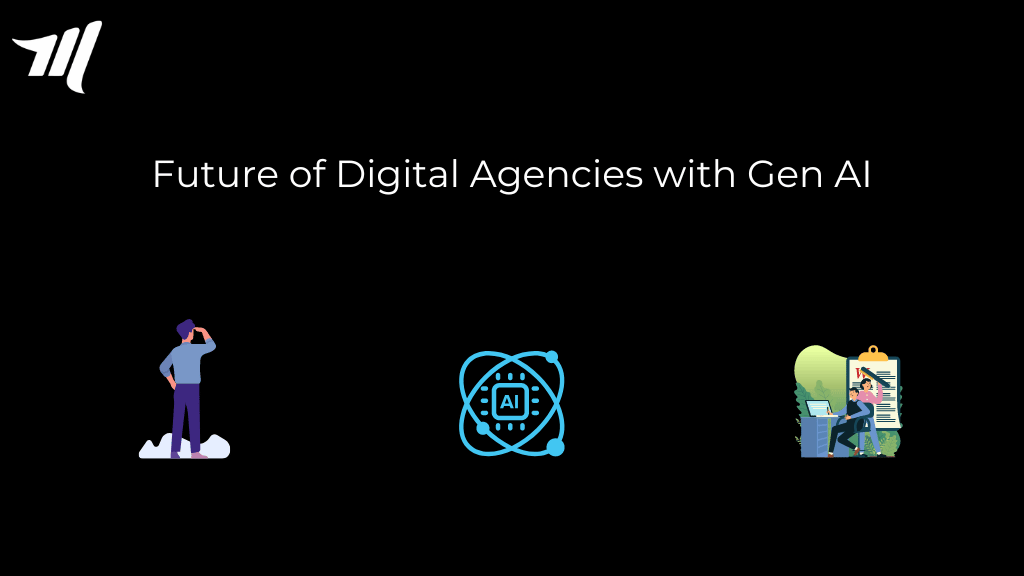Over the last two decades, digital agencies have played an important role in providing customers with solutions in terms of user experience, acquisition target monitoring, social, mobile, and data collection.
However, the lines between different types of marketing have begun to blur as a result of the rapid evolution of internet-linked technologies such as generative AI, leaving pure-play digital agencies with the reality of digital sameness and commoditization, according to one Forrester Research forecast for 2024.
According to a Capgemini Research Institute survey, 47% of worldwide organizations have dedicated teams to deploy generative AI (Gen AI) in marketing campaigns by 2023. In reality, organizations are already investing in generative AI for marketing, allocating 62% of their overall marketing technology spend to it.
Which Services from Generalist Digital Agencies Will Disappear?
According to Nathan Petralia, former managing director of Merkle Hong Kong, as the environment changes and evolves, the most vulnerable agency services are regular, repetitive jobs that may be automated, such as basic content production, data analysis, and campaign optimization.
“By strategically letting go of service offerings that can now be handled more efficiently by AI, agencies can redirect resources towards developing high-value capabilities requiring human ingenuity creative ideation, strategic thinking, and technology product development,” he went on to say.
According to Rachit Dayal, former CMO, of APAC, Merkle, agencies have been struggling with the human limits of how many variations of a marketing message their rare talent can create with limited time and money, allowing customers to expect more fresh messages across various platforms regularly.
So the entire marketing business hasn’t been able to be as dynamic and multichannel as it needs to be. “Generative AI can finally allow marketers to truly design messages in formats and frequencies that consumers want to see,” he said.
On the creative front, human-designed campaign services will decline, while human-curated, AI-generated multichannel campaign services will increase. According to Dayal, on the media side of digital agencies, generative AI has the power to engage or disinterest customers from important consumption channels.
Furthermore, Ruben Schreurs, chief strategy officer of Ebuiquity, believes that operational, repetitive, tactical services such as trafficking, localization, A/B(/n) testing, and campaign optimization are especially vulnerable to disruptions.
What will the Future hold for Digital Agencies?
Given the shorter life period of marketing trends as we enter the new digital era, Penelope Siraj, principal consultant at R3, predicts the introduction of agency strengths and specialisms that we aren’t used to seeing, such as AI Personality Designers or VR Experience Designers.
In this regard, digitally native agencies have an edge over other agencies because they have a fundamental awareness of the digital environment, tools, and processes, as well as what has to be done with the use of new technology across functions, Siraj explained.
True, we are not yet at a point in AI advancement where the humans using the tools are no longer important. As long as (digital) agencies invest in re-skilling their employees when necessary and alter their service models, this is an opportunity for independent businesses.
“Their service models must evolve, sure, but digital agencies have an opportunity to offer speed, efficiency, and specialist quality to clients in a way that will be more difficult for their larger full-service peers,” said Ebiquity’s Schreurs.
“We will likely see a consolidation in the industry with high volumes of strategic acquisitions, but new specialists will emerge in their place.”
To remain competitive in this rapidly changing market, agencies must transition from a service-centric strategy centered on manual chores to one that delivers integrated solutions enhanced by technology, according to Petralia.
“This evolution requires phasing out outdated service offerings that are misaligned with the emerging AI-driven marketing landscape,” he went on to say.
Meanwhile, Gary Cheung, general manager of NP Digital HK and Taiwan, stated that agencies may need to transition to a more advisory position, acting as a business partner rather than merely being hired to execute campaigns, but the future of digital agencies remains exciting and full of prospects.





